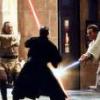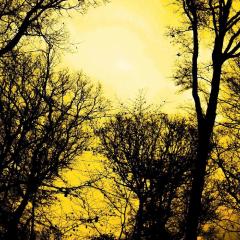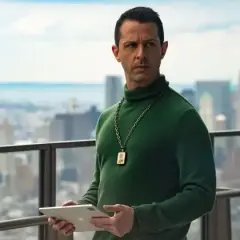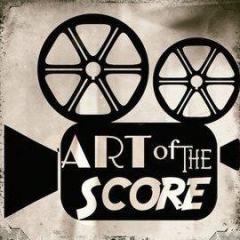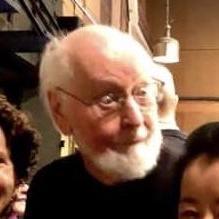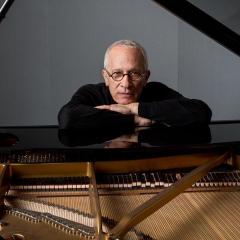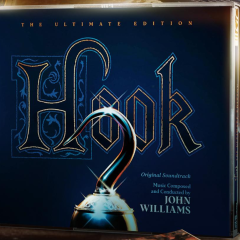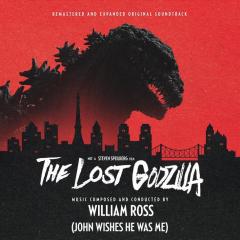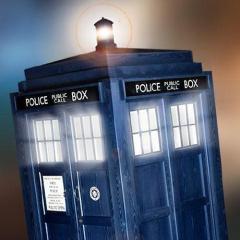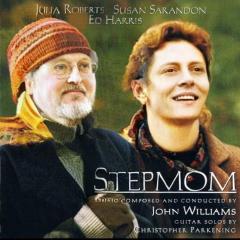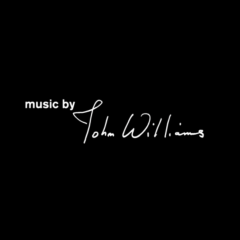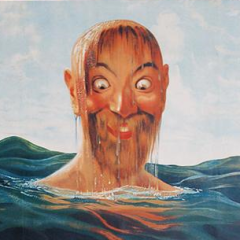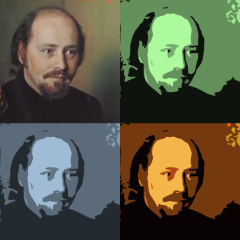-
Posts
1,143 -
Joined
-
Last visited
Reputation Activity
-
 SF1_freeze got a reaction from Brundlefly in Villeneuve's DUNE
SF1_freeze got a reaction from Brundlefly in Villeneuve's DUNE
I couldn't disagree more with you on this.
Dune is no where close to the real Sci-Fi or Fantasy epics like Starwars or LotR, because it lacks the basic ingredients that made them great:
A visually appealing and sprawling technologically advanced galaxy, with different societies, planets and eco-systems, that are shown in a way appropriate to the story. A musical thematic score that covers the whole scope of an epic and not like Dune only includes 2 or 3 themes within a big pot of loud and noisy nondescript action material or just atmospheric background "music" which is more sound design than anything else.
The films design and scope only works great on planet Dune/Arrakis themselve (which is of course also the most important part)!
For all other parts (other planets, societs, cities, technology, space travel, space scenes), which a real sci-fi epic should have, Dune failed hard.
I guess this can't be due to budget, but more due to a lack of vision and design capabilities on Villeneuves part.
Tell but don't show doesn't work in a sprawling Sci-Fi epic unless you never visit the bigger planets and the more powerful societies.
But if you do show them, you have to make it convincing not like a small budget indie-film or a low budget TV-show.
Caladan should have big cities, a big space port, industrial areas, civilian live, etc..
In Villeneuves Dune Caladan is visually completely boring and badly designed.
It is shown as an empty planet with a small medieval castle on a rock, with no cities, no civil life and no sense of visual awe and wonder As a viewer from their Home planet it makes no sense that this house could have a powerful army or any influence on the other great houses. Then suddenly they show the Atreides army and ships on a remote landing field again without any buildings, hangars, cities or a space port acommodating them. This makes no sense.
The Imperial Homeworld with the Emperors residence is even worse.
Nothing is shown there, like in a low budget tv show. Only one residence building carefully filmed that you don't see anything away in the distance, like as if they had no budget for any visual effect shots.
It's feels like a remote small residence complex on a lonely planet without anyone else there.
This is the opposite of what a real sprawling Sci-Fi epic would do and this undermines Dunes scope in a big way.
The Harkonnen Homeworld at least shows a big industrial and city complex, but it doesn't feel real and lived in.
It feels like a big facade so that Villeneuve can do his artsy cinematography.
You never have the impression that anyone could really live there or that there is any civil life or society there, that would make any sense.
-
 SF1_freeze got a reaction from MaxMovieMan in Villeneuve's DUNE
SF1_freeze got a reaction from MaxMovieMan in Villeneuve's DUNE
I couldn't disagree more with you on this.
Dune is no where close to the real Sci-Fi or Fantasy epics like Starwars or LotR, because it lacks the basic ingredients that made them great:
A visually appealing and sprawling technologically advanced galaxy, with different societies, planets and eco-systems, that are shown in a way appropriate to the story. A musical thematic score that covers the whole scope of an epic and not like Dune only includes 2 or 3 themes within a big pot of loud and noisy nondescript action material or just atmospheric background "music" which is more sound design than anything else.
The films design and scope only works great on planet Dune/Arrakis themselve (which is of course also the most important part)!
For all other parts (other planets, societs, cities, technology, space travel, space scenes), which a real sci-fi epic should have, Dune failed hard.
I guess this can't be due to budget, but more due to a lack of vision and design capabilities on Villeneuves part.
Tell but don't show doesn't work in a sprawling Sci-Fi epic unless you never visit the bigger planets and the more powerful societies.
But if you do show them, you have to make it convincing not like a small budget indie-film or a low budget TV-show.
Caladan should have big cities, a big space port, industrial areas, civilian live, etc..
In Villeneuves Dune Caladan is visually completely boring and badly designed.
It is shown as an empty planet with a small medieval castle on a rock, with no cities, no civil life and no sense of visual awe and wonder As a viewer from their Home planet it makes no sense that this house could have a powerful army or any influence on the other great houses. Then suddenly they show the Atreides army and ships on a remote landing field again without any buildings, hangars, cities or a space port acommodating them. This makes no sense.
The Imperial Homeworld with the Emperors residence is even worse.
Nothing is shown there, like in a low budget tv show. Only one residence building carefully filmed that you don't see anything away in the distance, like as if they had no budget for any visual effect shots.
It's feels like a remote small residence complex on a lonely planet without anyone else there.
This is the opposite of what a real sprawling Sci-Fi epic would do and this undermines Dunes scope in a big way.
The Harkonnen Homeworld at least shows a big industrial and city complex, but it doesn't feel real and lived in.
It feels like a big facade so that Villeneuve can do his artsy cinematography.
You never have the impression that anyone could really live there or that there is any civil life or society there, that would make any sense.
-
 SF1_freeze got a reaction from Yavar Moradi in The Art of the Score Podcast Thread
SF1_freeze got a reaction from Yavar Moradi in The Art of the Score Podcast Thread
A big THANK YOU for continuing your absolutely amazing podcast!
I have discovered Art of the Score in 2021 and was astonished how detailled and high quality your work in disecting a score really is.
The musical insight, background info, piano examples and explanations are fantastic and make for great little "educational" segments.
For me, this stands as THE benchmark film score podcast, period.
I hoped that someday you would continue with it and i'm so happy that you now do.
Please continue further and don't make us wait so long between episodes. A few new episodes a year would be great.
In terms of a wishlist for future episodes, the Home Alone scores would make for a great Christmas podcast, the Lord of the Rings scores seem inevitable (but would be a massive undertaking) and an Ennio Morricone episode would also be great.
Was the *different* type of episode (where you aksed ony of the composers) ever released or did i miss it?
-
 SF1_freeze got a reaction from PoggoAOTS in The Art of the Score Podcast Thread
SF1_freeze got a reaction from PoggoAOTS in The Art of the Score Podcast Thread
A big THANK YOU for continuing your absolutely amazing podcast!
I have discovered Art of the Score in 2021 and was astonished how detailled and high quality your work in disecting a score really is.
The musical insight, background info, piano examples and explanations are fantastic and make for great little "educational" segments.
For me, this stands as THE benchmark film score podcast, period.
I hoped that someday you would continue with it and i'm so happy that you now do.
Please continue further and don't make us wait so long between episodes. A few new episodes a year would be great.
In terms of a wishlist for future episodes, the Home Alone scores would make for a great Christmas podcast, the Lord of the Rings scores seem inevitable (but would be a massive undertaking) and an Ennio Morricone episode would also be great.
Was the *different* type of episode (where you aksed ony of the composers) ever released or did i miss it?
-
 SF1_freeze reacted to PoggoAOTS in The Art of the Score Podcast Thread
SF1_freeze reacted to PoggoAOTS in The Art of the Score Podcast Thread
Ahem... time dilation is a strange thing...
https://www.artofthescore.com.au/podcast/2024/1/22/episode-36-interstellar
-
 SF1_freeze got a reaction from BrotherSound in HOOK Ultimate Edition - MUSIC Discussion
SF1_freeze got a reaction from BrotherSound in HOOK Ultimate Edition - MUSIC Discussion
Received my Set finally, absolutely fantastic!
Thank you to all the people involved for making this gem a reality!
One of my favorite new discoveries are the low below B theme appareances (don't know a better name, how do you call it?).
I like this upbeat piraty melody better than the main low below theme (A theme?), which appears in the refrain and is as far as i know the only part carried over into the film.
Or did you encounter any moments of this B theme in the final film soundtrack?
-
 SF1_freeze got a reaction from Dr. Rick in HOOK Ultimate Edition - MUSIC Discussion
SF1_freeze got a reaction from Dr. Rick in HOOK Ultimate Edition - MUSIC Discussion
Received my Set finally, absolutely fantastic!
Thank you to all the people involved for making this gem a reality!
One of my favorite new discoveries are the low below B theme appareances (don't know a better name, how do you call it?).
I like this upbeat piraty melody better than the main low below theme (A theme?), which appears in the refrain and is as far as i know the only part carried over into the film.
Or did you encounter any moments of this B theme in the final film soundtrack?
-
 SF1_freeze got a reaction from Edmilson in Michael Giacchino's LOST (2004-2010) - live concert tour in 2024
SF1_freeze got a reaction from Edmilson in Michael Giacchino's LOST (2004-2010) - live concert tour in 2024
There was purgatory in the show but not on the island. Everything on the island was real.
The flash sideways were no afterlife, they were the purgatory for most of the Lost characters. They were sort of soulmates that had to solve their remaining issues in purgatory after they all died in the real world. In purgatory they had to atone for their sins (which they didn't manage to do while still alive) and to find each other.
In the end most of them did that and atoned, found each other, met in the church and are ready to move on into the afterlife/heaven/... Ben didnt because he still wasnt ready yet as he has not sufficiently atoned for all his sins and evil stuff. Not all characters had to go to purgatory/flash sideways like Eko who solved his stuff already on the island before he died and went directly into the afterlife.
-
 SF1_freeze got a reaction from MaxMovieMan in Michael Giacchino's LOST (2004-2010) - live concert tour in 2024
SF1_freeze got a reaction from MaxMovieMan in Michael Giacchino's LOST (2004-2010) - live concert tour in 2024
There was purgatory in the show but not on the island. Everything on the island was real.
The flash sideways were no afterlife, they were the purgatory for most of the Lost characters. They were sort of soulmates that had to solve their remaining issues in purgatory after they all died in the real world. In purgatory they had to atone for their sins (which they didn't manage to do while still alive) and to find each other.
In the end most of them did that and atoned, found each other, met in the church and are ready to move on into the afterlife/heaven/... Ben didnt because he still wasnt ready yet as he has not sufficiently atoned for all his sins and evil stuff. Not all characters had to go to purgatory/flash sideways like Eko who solved his stuff already on the island before he died and went directly into the afterlife.
-
 SF1_freeze got a reaction from Jay in Michael Giacchino's LOST (2004-2010) - live concert tour in 2024
SF1_freeze got a reaction from Jay in Michael Giacchino's LOST (2004-2010) - live concert tour in 2024
There was purgatory in the show but not on the island. Everything on the island was real.
The flash sideways were no afterlife, they were the purgatory for most of the Lost characters. They were sort of soulmates that had to solve their remaining issues in purgatory after they all died in the real world. In purgatory they had to atone for their sins (which they didn't manage to do while still alive) and to find each other.
In the end most of them did that and atoned, found each other, met in the church and are ready to move on into the afterlife/heaven/... Ben didnt because he still wasnt ready yet as he has not sufficiently atoned for all his sins and evil stuff. Not all characters had to go to purgatory/flash sideways like Eko who solved his stuff already on the island before he died and went directly into the afterlife.
-
 SF1_freeze got a reaction from Jurassic Shark in Michael Giacchino's LOST (2004-2010) - live concert tour in 2024
SF1_freeze got a reaction from Jurassic Shark in Michael Giacchino's LOST (2004-2010) - live concert tour in 2024
There was purgatory in the show but not on the island. Everything on the island was real.
The flash sideways were no afterlife, they were the purgatory for most of the Lost characters. They were sort of soulmates that had to solve their remaining issues in purgatory after they all died in the real world. In purgatory they had to atone for their sins (which they didn't manage to do while still alive) and to find each other.
In the end most of them did that and atoned, found each other, met in the church and are ready to move on into the afterlife/heaven/... Ben didnt because he still wasnt ready yet as he has not sufficiently atoned for all his sins and evil stuff. Not all characters had to go to purgatory/flash sideways like Eko who solved his stuff already on the island before he died and went directly into the afterlife.
-
 SF1_freeze got a reaction from iamleyeti in Little behind the scenes stuff at Sony
SF1_freeze got a reaction from iamleyeti in Little behind the scenes stuff at Sony
Even though InTheCity refused to post his interview, we now have another 2023 interview about William Lyons work with John Williams on PoA
https://faroutmagazine.co.uk/composer-spotlight-william-lyons/
And by chance i found another very short older one from 2009, which went under all our radar
https://www.sfcv.org/articles/artist-spotlight/interview-william-lyons-eclectic-about-early-music
2023 INTERVIEW
The historical score is a tricky thing to get right. Composers must all decide whether to dedicate themselves to historical authenticity or, in sacrificing this, seek to evoke the mood of an era. More often than not, Hollywood film composers opt for the latter. But for decades now, composer, arranger and historical advisor William Lyons has been relentlessly vouching for the former.
If you haven’t heard Lyons’ music for films like The Favourite and Elizabeth: The Golden Age, then you’ve almost certainly heard him plucking some intricately-strung lute or blowing a shawm in one of John William’s scores for the original Harry Potter films. When not researching, teaching or composing music for the stage and screen, Lyons provides expert historical advice to world-class film composers, helping them to create the most accurate and immersive score possible.
You were the historical advisor to John Williams on The Prisoner of Azkaban. How was he to work with?
“He called me and said he’d heard my work with The Dufay Collective, who did a lot of medieval stuff. One of the recordings we’d done had this loud band of shawms on it, and he’d heard this record and had decided this sound world was perfect for The Prisoner Of Azkaban. So we had a long conversation, he sent me his ideas, and I did some idiomatic arrangements. I then sent those back, and he did his version of them. It went like that, back and forth, for a while, and then we got the players together and had this wonderful day in Abbey Road.
“A lot of people accuse John Williams of lifting his music form here and there, but what he actually does is take a style and work within that style very effectively. I worked with him as a musician on a couple of other Harry Potter films, and one of the things I noticed is that he knows the instruments he’s working with inside out. A lot of people use an arranger and an orchestrator to work out their demoed themes, but he knew exactly what he wanted. And he was really invested in the historic aspect of it in terms of the harmonies and the modal style of the music. A lot of the instruments I play are considered primitive. They’re proto-flutes or proto-bassoons or whatever. There are composers out there who think if it hasn’t got the full three-octave range of a flute, then it’s not a proper instrument. John Williams wasn’t like that. He was great and one of the very few composers who have been a joy to work with. Alexander Desplat is another”.
2009 INTERVIEW
Tell us about your work in film.
I don’t spend a lot of time doing film, but it’s great fun. I’ve played on soundtracks and have recently been an advisor on Elizabeth: The Golden Age and Pride and Prejudice. Shrek was brilliant; I brought my daughter into the recording studio and she got a sneak peek of the film, which she really enjoyed [Lyons expects another child in December]. Harry Potter 3 was one of the best experiences I’ve had, because I worked with the great composer John Williams. My role is to advise on historical context — the instruments to use, the type of music that would be played, how the musicians would stand, etcetera ...
-
 SF1_freeze got a reaction from j39m in Little behind the scenes stuff at Sony
SF1_freeze got a reaction from j39m in Little behind the scenes stuff at Sony
Even though InTheCity refused to post his interview, we now have another 2023 interview about William Lyons work with John Williams on PoA
https://faroutmagazine.co.uk/composer-spotlight-william-lyons/
And by chance i found another very short older one from 2009, which went under all our radar
https://www.sfcv.org/articles/artist-spotlight/interview-william-lyons-eclectic-about-early-music
2023 INTERVIEW
The historical score is a tricky thing to get right. Composers must all decide whether to dedicate themselves to historical authenticity or, in sacrificing this, seek to evoke the mood of an era. More often than not, Hollywood film composers opt for the latter. But for decades now, composer, arranger and historical advisor William Lyons has been relentlessly vouching for the former.
If you haven’t heard Lyons’ music for films like The Favourite and Elizabeth: The Golden Age, then you’ve almost certainly heard him plucking some intricately-strung lute or blowing a shawm in one of John William’s scores for the original Harry Potter films. When not researching, teaching or composing music for the stage and screen, Lyons provides expert historical advice to world-class film composers, helping them to create the most accurate and immersive score possible.
You were the historical advisor to John Williams on The Prisoner of Azkaban. How was he to work with?
“He called me and said he’d heard my work with The Dufay Collective, who did a lot of medieval stuff. One of the recordings we’d done had this loud band of shawms on it, and he’d heard this record and had decided this sound world was perfect for The Prisoner Of Azkaban. So we had a long conversation, he sent me his ideas, and I did some idiomatic arrangements. I then sent those back, and he did his version of them. It went like that, back and forth, for a while, and then we got the players together and had this wonderful day in Abbey Road.
“A lot of people accuse John Williams of lifting his music form here and there, but what he actually does is take a style and work within that style very effectively. I worked with him as a musician on a couple of other Harry Potter films, and one of the things I noticed is that he knows the instruments he’s working with inside out. A lot of people use an arranger and an orchestrator to work out their demoed themes, but he knew exactly what he wanted. And he was really invested in the historic aspect of it in terms of the harmonies and the modal style of the music. A lot of the instruments I play are considered primitive. They’re proto-flutes or proto-bassoons or whatever. There are composers out there who think if it hasn’t got the full three-octave range of a flute, then it’s not a proper instrument. John Williams wasn’t like that. He was great and one of the very few composers who have been a joy to work with. Alexander Desplat is another”.
2009 INTERVIEW
Tell us about your work in film.
I don’t spend a lot of time doing film, but it’s great fun. I’ve played on soundtracks and have recently been an advisor on Elizabeth: The Golden Age and Pride and Prejudice. Shrek was brilliant; I brought my daughter into the recording studio and she got a sneak peek of the film, which she really enjoyed [Lyons expects another child in December]. Harry Potter 3 was one of the best experiences I’ve had, because I worked with the great composer John Williams. My role is to advise on historical context — the instruments to use, the type of music that would be played, how the musicians would stand, etcetera ...
-
 SF1_freeze got a reaction from TSMefford in Little behind the scenes stuff at Sony
SF1_freeze got a reaction from TSMefford in Little behind the scenes stuff at Sony
Even though InTheCity refused to post his interview, we now have another 2023 interview about William Lyons work with John Williams on PoA
https://faroutmagazine.co.uk/composer-spotlight-william-lyons/
And by chance i found another very short older one from 2009, which went under all our radar
https://www.sfcv.org/articles/artist-spotlight/interview-william-lyons-eclectic-about-early-music
2023 INTERVIEW
The historical score is a tricky thing to get right. Composers must all decide whether to dedicate themselves to historical authenticity or, in sacrificing this, seek to evoke the mood of an era. More often than not, Hollywood film composers opt for the latter. But for decades now, composer, arranger and historical advisor William Lyons has been relentlessly vouching for the former.
If you haven’t heard Lyons’ music for films like The Favourite and Elizabeth: The Golden Age, then you’ve almost certainly heard him plucking some intricately-strung lute or blowing a shawm in one of John William’s scores for the original Harry Potter films. When not researching, teaching or composing music for the stage and screen, Lyons provides expert historical advice to world-class film composers, helping them to create the most accurate and immersive score possible.
You were the historical advisor to John Williams on The Prisoner of Azkaban. How was he to work with?
“He called me and said he’d heard my work with The Dufay Collective, who did a lot of medieval stuff. One of the recordings we’d done had this loud band of shawms on it, and he’d heard this record and had decided this sound world was perfect for The Prisoner Of Azkaban. So we had a long conversation, he sent me his ideas, and I did some idiomatic arrangements. I then sent those back, and he did his version of them. It went like that, back and forth, for a while, and then we got the players together and had this wonderful day in Abbey Road.
“A lot of people accuse John Williams of lifting his music form here and there, but what he actually does is take a style and work within that style very effectively. I worked with him as a musician on a couple of other Harry Potter films, and one of the things I noticed is that he knows the instruments he’s working with inside out. A lot of people use an arranger and an orchestrator to work out their demoed themes, but he knew exactly what he wanted. And he was really invested in the historic aspect of it in terms of the harmonies and the modal style of the music. A lot of the instruments I play are considered primitive. They’re proto-flutes or proto-bassoons or whatever. There are composers out there who think if it hasn’t got the full three-octave range of a flute, then it’s not a proper instrument. John Williams wasn’t like that. He was great and one of the very few composers who have been a joy to work with. Alexander Desplat is another”.
2009 INTERVIEW
Tell us about your work in film.
I don’t spend a lot of time doing film, but it’s great fun. I’ve played on soundtracks and have recently been an advisor on Elizabeth: The Golden Age and Pride and Prejudice. Shrek was brilliant; I brought my daughter into the recording studio and she got a sneak peek of the film, which she really enjoyed [Lyons expects another child in December]. Harry Potter 3 was one of the best experiences I’ve had, because I worked with the great composer John Williams. My role is to advise on historical context — the instruments to use, the type of music that would be played, how the musicians would stand, etcetera ...
-
 SF1_freeze got a reaction from enderdrag64 in Little behind the scenes stuff at Sony
SF1_freeze got a reaction from enderdrag64 in Little behind the scenes stuff at Sony
Even though InTheCity refused to post his interview, we now have another 2023 interview about William Lyons work with John Williams on PoA
https://faroutmagazine.co.uk/composer-spotlight-william-lyons/
And by chance i found another very short older one from 2009, which went under all our radar
https://www.sfcv.org/articles/artist-spotlight/interview-william-lyons-eclectic-about-early-music
2023 INTERVIEW
The historical score is a tricky thing to get right. Composers must all decide whether to dedicate themselves to historical authenticity or, in sacrificing this, seek to evoke the mood of an era. More often than not, Hollywood film composers opt for the latter. But for decades now, composer, arranger and historical advisor William Lyons has been relentlessly vouching for the former.
If you haven’t heard Lyons’ music for films like The Favourite and Elizabeth: The Golden Age, then you’ve almost certainly heard him plucking some intricately-strung lute or blowing a shawm in one of John William’s scores for the original Harry Potter films. When not researching, teaching or composing music for the stage and screen, Lyons provides expert historical advice to world-class film composers, helping them to create the most accurate and immersive score possible.
You were the historical advisor to John Williams on The Prisoner of Azkaban. How was he to work with?
“He called me and said he’d heard my work with The Dufay Collective, who did a lot of medieval stuff. One of the recordings we’d done had this loud band of shawms on it, and he’d heard this record and had decided this sound world was perfect for The Prisoner Of Azkaban. So we had a long conversation, he sent me his ideas, and I did some idiomatic arrangements. I then sent those back, and he did his version of them. It went like that, back and forth, for a while, and then we got the players together and had this wonderful day in Abbey Road.
“A lot of people accuse John Williams of lifting his music form here and there, but what he actually does is take a style and work within that style very effectively. I worked with him as a musician on a couple of other Harry Potter films, and one of the things I noticed is that he knows the instruments he’s working with inside out. A lot of people use an arranger and an orchestrator to work out their demoed themes, but he knew exactly what he wanted. And he was really invested in the historic aspect of it in terms of the harmonies and the modal style of the music. A lot of the instruments I play are considered primitive. They’re proto-flutes or proto-bassoons or whatever. There are composers out there who think if it hasn’t got the full three-octave range of a flute, then it’s not a proper instrument. John Williams wasn’t like that. He was great and one of the very few composers who have been a joy to work with. Alexander Desplat is another”.
2009 INTERVIEW
Tell us about your work in film.
I don’t spend a lot of time doing film, but it’s great fun. I’ve played on soundtracks and have recently been an advisor on Elizabeth: The Golden Age and Pride and Prejudice. Shrek was brilliant; I brought my daughter into the recording studio and she got a sneak peek of the film, which she really enjoyed [Lyons expects another child in December]. Harry Potter 3 was one of the best experiences I’ve had, because I worked with the great composer John Williams. My role is to advise on historical context — the instruments to use, the type of music that would be played, how the musicians would stand, etcetera ...
-
 SF1_freeze got a reaction from Not Mr. Big in Little behind the scenes stuff at Sony
SF1_freeze got a reaction from Not Mr. Big in Little behind the scenes stuff at Sony
Even though InTheCity refused to post his interview, we now have another 2023 interview about William Lyons work with John Williams on PoA
https://faroutmagazine.co.uk/composer-spotlight-william-lyons/
And by chance i found another very short older one from 2009, which went under all our radar
https://www.sfcv.org/articles/artist-spotlight/interview-william-lyons-eclectic-about-early-music
2023 INTERVIEW
The historical score is a tricky thing to get right. Composers must all decide whether to dedicate themselves to historical authenticity or, in sacrificing this, seek to evoke the mood of an era. More often than not, Hollywood film composers opt for the latter. But for decades now, composer, arranger and historical advisor William Lyons has been relentlessly vouching for the former.
If you haven’t heard Lyons’ music for films like The Favourite and Elizabeth: The Golden Age, then you’ve almost certainly heard him plucking some intricately-strung lute or blowing a shawm in one of John William’s scores for the original Harry Potter films. When not researching, teaching or composing music for the stage and screen, Lyons provides expert historical advice to world-class film composers, helping them to create the most accurate and immersive score possible.
You were the historical advisor to John Williams on The Prisoner of Azkaban. How was he to work with?
“He called me and said he’d heard my work with The Dufay Collective, who did a lot of medieval stuff. One of the recordings we’d done had this loud band of shawms on it, and he’d heard this record and had decided this sound world was perfect for The Prisoner Of Azkaban. So we had a long conversation, he sent me his ideas, and I did some idiomatic arrangements. I then sent those back, and he did his version of them. It went like that, back and forth, for a while, and then we got the players together and had this wonderful day in Abbey Road.
“A lot of people accuse John Williams of lifting his music form here and there, but what he actually does is take a style and work within that style very effectively. I worked with him as a musician on a couple of other Harry Potter films, and one of the things I noticed is that he knows the instruments he’s working with inside out. A lot of people use an arranger and an orchestrator to work out their demoed themes, but he knew exactly what he wanted. And he was really invested in the historic aspect of it in terms of the harmonies and the modal style of the music. A lot of the instruments I play are considered primitive. They’re proto-flutes or proto-bassoons or whatever. There are composers out there who think if it hasn’t got the full three-octave range of a flute, then it’s not a proper instrument. John Williams wasn’t like that. He was great and one of the very few composers who have been a joy to work with. Alexander Desplat is another”.
2009 INTERVIEW
Tell us about your work in film.
I don’t spend a lot of time doing film, but it’s great fun. I’ve played on soundtracks and have recently been an advisor on Elizabeth: The Golden Age and Pride and Prejudice. Shrek was brilliant; I brought my daughter into the recording studio and she got a sneak peek of the film, which she really enjoyed [Lyons expects another child in December]. Harry Potter 3 was one of the best experiences I’ve had, because I worked with the great composer John Williams. My role is to advise on historical context — the instruments to use, the type of music that would be played, how the musicians would stand, etcetera ...
-
 SF1_freeze got a reaction from Edmilson in Little behind the scenes stuff at Sony
SF1_freeze got a reaction from Edmilson in Little behind the scenes stuff at Sony
Even though InTheCity refused to post his interview, we now have another 2023 interview about William Lyons work with John Williams on PoA
https://faroutmagazine.co.uk/composer-spotlight-william-lyons/
And by chance i found another very short older one from 2009, which went under all our radar
https://www.sfcv.org/articles/artist-spotlight/interview-william-lyons-eclectic-about-early-music
2023 INTERVIEW
The historical score is a tricky thing to get right. Composers must all decide whether to dedicate themselves to historical authenticity or, in sacrificing this, seek to evoke the mood of an era. More often than not, Hollywood film composers opt for the latter. But for decades now, composer, arranger and historical advisor William Lyons has been relentlessly vouching for the former.
If you haven’t heard Lyons’ music for films like The Favourite and Elizabeth: The Golden Age, then you’ve almost certainly heard him plucking some intricately-strung lute or blowing a shawm in one of John William’s scores for the original Harry Potter films. When not researching, teaching or composing music for the stage and screen, Lyons provides expert historical advice to world-class film composers, helping them to create the most accurate and immersive score possible.
You were the historical advisor to John Williams on The Prisoner of Azkaban. How was he to work with?
“He called me and said he’d heard my work with The Dufay Collective, who did a lot of medieval stuff. One of the recordings we’d done had this loud band of shawms on it, and he’d heard this record and had decided this sound world was perfect for The Prisoner Of Azkaban. So we had a long conversation, he sent me his ideas, and I did some idiomatic arrangements. I then sent those back, and he did his version of them. It went like that, back and forth, for a while, and then we got the players together and had this wonderful day in Abbey Road.
“A lot of people accuse John Williams of lifting his music form here and there, but what he actually does is take a style and work within that style very effectively. I worked with him as a musician on a couple of other Harry Potter films, and one of the things I noticed is that he knows the instruments he’s working with inside out. A lot of people use an arranger and an orchestrator to work out their demoed themes, but he knew exactly what he wanted. And he was really invested in the historic aspect of it in terms of the harmonies and the modal style of the music. A lot of the instruments I play are considered primitive. They’re proto-flutes or proto-bassoons or whatever. There are composers out there who think if it hasn’t got the full three-octave range of a flute, then it’s not a proper instrument. John Williams wasn’t like that. He was great and one of the very few composers who have been a joy to work with. Alexander Desplat is another”.
2009 INTERVIEW
Tell us about your work in film.
I don’t spend a lot of time doing film, but it’s great fun. I’ve played on soundtracks and have recently been an advisor on Elizabeth: The Golden Age and Pride and Prejudice. Shrek was brilliant; I brought my daughter into the recording studio and she got a sneak peek of the film, which she really enjoyed [Lyons expects another child in December]. Harry Potter 3 was one of the best experiences I’ve had, because I worked with the great composer John Williams. My role is to advise on historical context — the instruments to use, the type of music that would be played, how the musicians would stand, etcetera ...
-
 SF1_freeze got a reaction from Jay in Little behind the scenes stuff at Sony
SF1_freeze got a reaction from Jay in Little behind the scenes stuff at Sony
Even though InTheCity refused to post his interview, we now have another 2023 interview about William Lyons work with John Williams on PoA
https://faroutmagazine.co.uk/composer-spotlight-william-lyons/
And by chance i found another very short older one from 2009, which went under all our radar
https://www.sfcv.org/articles/artist-spotlight/interview-william-lyons-eclectic-about-early-music
2023 INTERVIEW
The historical score is a tricky thing to get right. Composers must all decide whether to dedicate themselves to historical authenticity or, in sacrificing this, seek to evoke the mood of an era. More often than not, Hollywood film composers opt for the latter. But for decades now, composer, arranger and historical advisor William Lyons has been relentlessly vouching for the former.
If you haven’t heard Lyons’ music for films like The Favourite and Elizabeth: The Golden Age, then you’ve almost certainly heard him plucking some intricately-strung lute or blowing a shawm in one of John William’s scores for the original Harry Potter films. When not researching, teaching or composing music for the stage and screen, Lyons provides expert historical advice to world-class film composers, helping them to create the most accurate and immersive score possible.
You were the historical advisor to John Williams on The Prisoner of Azkaban. How was he to work with?
“He called me and said he’d heard my work with The Dufay Collective, who did a lot of medieval stuff. One of the recordings we’d done had this loud band of shawms on it, and he’d heard this record and had decided this sound world was perfect for The Prisoner Of Azkaban. So we had a long conversation, he sent me his ideas, and I did some idiomatic arrangements. I then sent those back, and he did his version of them. It went like that, back and forth, for a while, and then we got the players together and had this wonderful day in Abbey Road.
“A lot of people accuse John Williams of lifting his music form here and there, but what he actually does is take a style and work within that style very effectively. I worked with him as a musician on a couple of other Harry Potter films, and one of the things I noticed is that he knows the instruments he’s working with inside out. A lot of people use an arranger and an orchestrator to work out their demoed themes, but he knew exactly what he wanted. And he was really invested in the historic aspect of it in terms of the harmonies and the modal style of the music. A lot of the instruments I play are considered primitive. They’re proto-flutes or proto-bassoons or whatever. There are composers out there who think if it hasn’t got the full three-octave range of a flute, then it’s not a proper instrument. John Williams wasn’t like that. He was great and one of the very few composers who have been a joy to work with. Alexander Desplat is another”.
2009 INTERVIEW
Tell us about your work in film.
I don’t spend a lot of time doing film, but it’s great fun. I’ve played on soundtracks and have recently been an advisor on Elizabeth: The Golden Age and Pride and Prejudice. Shrek was brilliant; I brought my daughter into the recording studio and she got a sneak peek of the film, which she really enjoyed [Lyons expects another child in December]. Harry Potter 3 was one of the best experiences I’ve had, because I worked with the great composer John Williams. My role is to advise on historical context — the instruments to use, the type of music that would be played, how the musicians would stand, etcetera ...
-
 SF1_freeze got a reaction from Smeltington in Little behind the scenes stuff at Sony
SF1_freeze got a reaction from Smeltington in Little behind the scenes stuff at Sony
Even though InTheCity refused to post his interview, we now have another 2023 interview about William Lyons work with John Williams on PoA
https://faroutmagazine.co.uk/composer-spotlight-william-lyons/
And by chance i found another very short older one from 2009, which went under all our radar
https://www.sfcv.org/articles/artist-spotlight/interview-william-lyons-eclectic-about-early-music
2023 INTERVIEW
The historical score is a tricky thing to get right. Composers must all decide whether to dedicate themselves to historical authenticity or, in sacrificing this, seek to evoke the mood of an era. More often than not, Hollywood film composers opt for the latter. But for decades now, composer, arranger and historical advisor William Lyons has been relentlessly vouching for the former.
If you haven’t heard Lyons’ music for films like The Favourite and Elizabeth: The Golden Age, then you’ve almost certainly heard him plucking some intricately-strung lute or blowing a shawm in one of John William’s scores for the original Harry Potter films. When not researching, teaching or composing music for the stage and screen, Lyons provides expert historical advice to world-class film composers, helping them to create the most accurate and immersive score possible.
You were the historical advisor to John Williams on The Prisoner of Azkaban. How was he to work with?
“He called me and said he’d heard my work with The Dufay Collective, who did a lot of medieval stuff. One of the recordings we’d done had this loud band of shawms on it, and he’d heard this record and had decided this sound world was perfect for The Prisoner Of Azkaban. So we had a long conversation, he sent me his ideas, and I did some idiomatic arrangements. I then sent those back, and he did his version of them. It went like that, back and forth, for a while, and then we got the players together and had this wonderful day in Abbey Road.
“A lot of people accuse John Williams of lifting his music form here and there, but what he actually does is take a style and work within that style very effectively. I worked with him as a musician on a couple of other Harry Potter films, and one of the things I noticed is that he knows the instruments he’s working with inside out. A lot of people use an arranger and an orchestrator to work out their demoed themes, but he knew exactly what he wanted. And he was really invested in the historic aspect of it in terms of the harmonies and the modal style of the music. A lot of the instruments I play are considered primitive. They’re proto-flutes or proto-bassoons or whatever. There are composers out there who think if it hasn’t got the full three-octave range of a flute, then it’s not a proper instrument. John Williams wasn’t like that. He was great and one of the very few composers who have been a joy to work with. Alexander Desplat is another”.
2009 INTERVIEW
Tell us about your work in film.
I don’t spend a lot of time doing film, but it’s great fun. I’ve played on soundtracks and have recently been an advisor on Elizabeth: The Golden Age and Pride and Prejudice. Shrek was brilliant; I brought my daughter into the recording studio and she got a sneak peek of the film, which she really enjoyed [Lyons expects another child in December]. Harry Potter 3 was one of the best experiences I’ve had, because I worked with the great composer John Williams. My role is to advise on historical context — the instruments to use, the type of music that would be played, how the musicians would stand, etcetera ...
-
 SF1_freeze got a reaction from Bayesian in Little behind the scenes stuff at Sony
SF1_freeze got a reaction from Bayesian in Little behind the scenes stuff at Sony
Even though InTheCity refused to post his interview, we now have another 2023 interview about William Lyons work with John Williams on PoA
https://faroutmagazine.co.uk/composer-spotlight-william-lyons/
And by chance i found another very short older one from 2009, which went under all our radar
https://www.sfcv.org/articles/artist-spotlight/interview-william-lyons-eclectic-about-early-music
2023 INTERVIEW
The historical score is a tricky thing to get right. Composers must all decide whether to dedicate themselves to historical authenticity or, in sacrificing this, seek to evoke the mood of an era. More often than not, Hollywood film composers opt for the latter. But for decades now, composer, arranger and historical advisor William Lyons has been relentlessly vouching for the former.
If you haven’t heard Lyons’ music for films like The Favourite and Elizabeth: The Golden Age, then you’ve almost certainly heard him plucking some intricately-strung lute or blowing a shawm in one of John William’s scores for the original Harry Potter films. When not researching, teaching or composing music for the stage and screen, Lyons provides expert historical advice to world-class film composers, helping them to create the most accurate and immersive score possible.
You were the historical advisor to John Williams on The Prisoner of Azkaban. How was he to work with?
“He called me and said he’d heard my work with The Dufay Collective, who did a lot of medieval stuff. One of the recordings we’d done had this loud band of shawms on it, and he’d heard this record and had decided this sound world was perfect for The Prisoner Of Azkaban. So we had a long conversation, he sent me his ideas, and I did some idiomatic arrangements. I then sent those back, and he did his version of them. It went like that, back and forth, for a while, and then we got the players together and had this wonderful day in Abbey Road.
“A lot of people accuse John Williams of lifting his music form here and there, but what he actually does is take a style and work within that style very effectively. I worked with him as a musician on a couple of other Harry Potter films, and one of the things I noticed is that he knows the instruments he’s working with inside out. A lot of people use an arranger and an orchestrator to work out their demoed themes, but he knew exactly what he wanted. And he was really invested in the historic aspect of it in terms of the harmonies and the modal style of the music. A lot of the instruments I play are considered primitive. They’re proto-flutes or proto-bassoons or whatever. There are composers out there who think if it hasn’t got the full three-octave range of a flute, then it’s not a proper instrument. John Williams wasn’t like that. He was great and one of the very few composers who have been a joy to work with. Alexander Desplat is another”.
2009 INTERVIEW
Tell us about your work in film.
I don’t spend a lot of time doing film, but it’s great fun. I’ve played on soundtracks and have recently been an advisor on Elizabeth: The Golden Age and Pride and Prejudice. Shrek was brilliant; I brought my daughter into the recording studio and she got a sneak peek of the film, which she really enjoyed [Lyons expects another child in December]. Harry Potter 3 was one of the best experiences I’ve had, because I worked with the great composer John Williams. My role is to advise on historical context — the instruments to use, the type of music that would be played, how the musicians would stand, etcetera ...
-
 SF1_freeze got a reaction from ragoz350 in Little behind the scenes stuff at Sony
SF1_freeze got a reaction from ragoz350 in Little behind the scenes stuff at Sony
Even though InTheCity refused to post his interview, we now have another 2023 interview about William Lyons work with John Williams on PoA
https://faroutmagazine.co.uk/composer-spotlight-william-lyons/
And by chance i found another very short older one from 2009, which went under all our radar
https://www.sfcv.org/articles/artist-spotlight/interview-william-lyons-eclectic-about-early-music
2023 INTERVIEW
The historical score is a tricky thing to get right. Composers must all decide whether to dedicate themselves to historical authenticity or, in sacrificing this, seek to evoke the mood of an era. More often than not, Hollywood film composers opt for the latter. But for decades now, composer, arranger and historical advisor William Lyons has been relentlessly vouching for the former.
If you haven’t heard Lyons’ music for films like The Favourite and Elizabeth: The Golden Age, then you’ve almost certainly heard him plucking some intricately-strung lute or blowing a shawm in one of John William’s scores for the original Harry Potter films. When not researching, teaching or composing music for the stage and screen, Lyons provides expert historical advice to world-class film composers, helping them to create the most accurate and immersive score possible.
You were the historical advisor to John Williams on The Prisoner of Azkaban. How was he to work with?
“He called me and said he’d heard my work with The Dufay Collective, who did a lot of medieval stuff. One of the recordings we’d done had this loud band of shawms on it, and he’d heard this record and had decided this sound world was perfect for The Prisoner Of Azkaban. So we had a long conversation, he sent me his ideas, and I did some idiomatic arrangements. I then sent those back, and he did his version of them. It went like that, back and forth, for a while, and then we got the players together and had this wonderful day in Abbey Road.
“A lot of people accuse John Williams of lifting his music form here and there, but what he actually does is take a style and work within that style very effectively. I worked with him as a musician on a couple of other Harry Potter films, and one of the things I noticed is that he knows the instruments he’s working with inside out. A lot of people use an arranger and an orchestrator to work out their demoed themes, but he knew exactly what he wanted. And he was really invested in the historic aspect of it in terms of the harmonies and the modal style of the music. A lot of the instruments I play are considered primitive. They’re proto-flutes or proto-bassoons or whatever. There are composers out there who think if it hasn’t got the full three-octave range of a flute, then it’s not a proper instrument. John Williams wasn’t like that. He was great and one of the very few composers who have been a joy to work with. Alexander Desplat is another”.
2009 INTERVIEW
Tell us about your work in film.
I don’t spend a lot of time doing film, but it’s great fun. I’ve played on soundtracks and have recently been an advisor on Elizabeth: The Golden Age and Pride and Prejudice. Shrek was brilliant; I brought my daughter into the recording studio and she got a sneak peek of the film, which she really enjoyed [Lyons expects another child in December]. Harry Potter 3 was one of the best experiences I’ve had, because I worked with the great composer John Williams. My role is to advise on historical context — the instruments to use, the type of music that would be played, how the musicians would stand, etcetera ...
-
 SF1_freeze got a reaction from Holko in Little behind the scenes stuff at Sony
SF1_freeze got a reaction from Holko in Little behind the scenes stuff at Sony
Even though InTheCity refused to post his interview, we now have another 2023 interview about William Lyons work with John Williams on PoA
https://faroutmagazine.co.uk/composer-spotlight-william-lyons/
And by chance i found another very short older one from 2009, which went under all our radar
https://www.sfcv.org/articles/artist-spotlight/interview-william-lyons-eclectic-about-early-music
2023 INTERVIEW
The historical score is a tricky thing to get right. Composers must all decide whether to dedicate themselves to historical authenticity or, in sacrificing this, seek to evoke the mood of an era. More often than not, Hollywood film composers opt for the latter. But for decades now, composer, arranger and historical advisor William Lyons has been relentlessly vouching for the former.
If you haven’t heard Lyons’ music for films like The Favourite and Elizabeth: The Golden Age, then you’ve almost certainly heard him plucking some intricately-strung lute or blowing a shawm in one of John William’s scores for the original Harry Potter films. When not researching, teaching or composing music for the stage and screen, Lyons provides expert historical advice to world-class film composers, helping them to create the most accurate and immersive score possible.
You were the historical advisor to John Williams on The Prisoner of Azkaban. How was he to work with?
“He called me and said he’d heard my work with The Dufay Collective, who did a lot of medieval stuff. One of the recordings we’d done had this loud band of shawms on it, and he’d heard this record and had decided this sound world was perfect for The Prisoner Of Azkaban. So we had a long conversation, he sent me his ideas, and I did some idiomatic arrangements. I then sent those back, and he did his version of them. It went like that, back and forth, for a while, and then we got the players together and had this wonderful day in Abbey Road.
“A lot of people accuse John Williams of lifting his music form here and there, but what he actually does is take a style and work within that style very effectively. I worked with him as a musician on a couple of other Harry Potter films, and one of the things I noticed is that he knows the instruments he’s working with inside out. A lot of people use an arranger and an orchestrator to work out their demoed themes, but he knew exactly what he wanted. And he was really invested in the historic aspect of it in terms of the harmonies and the modal style of the music. A lot of the instruments I play are considered primitive. They’re proto-flutes or proto-bassoons or whatever. There are composers out there who think if it hasn’t got the full three-octave range of a flute, then it’s not a proper instrument. John Williams wasn’t like that. He was great and one of the very few composers who have been a joy to work with. Alexander Desplat is another”.
2009 INTERVIEW
Tell us about your work in film.
I don’t spend a lot of time doing film, but it’s great fun. I’ve played on soundtracks and have recently been an advisor on Elizabeth: The Golden Age and Pride and Prejudice. Shrek was brilliant; I brought my daughter into the recording studio and she got a sneak peek of the film, which she really enjoyed [Lyons expects another child in December]. Harry Potter 3 was one of the best experiences I’ve had, because I worked with the great composer John Williams. My role is to advise on historical context — the instruments to use, the type of music that would be played, how the musicians would stand, etcetera ...
-
 SF1_freeze got a reaction from MaxMovieMan in What's a score you wished John Williams did?
SF1_freeze got a reaction from MaxMovieMan in What's a score you wished John Williams did?
The Harry Potter Scores, especially Goblet of Fire and DH part 2...i think it was rumored JW was pretty close to score these two.
Other than that a James Bond score would have really been nice.
While i think a LotR JW score would of course have been extremely interesting, Howard Shore did such a perfect job, that i can't think that JW LotR scores would have been better.
-
 SF1_freeze got a reaction from BB-8 in Helena's Theme (for Violin and Orchestra) performed by Anne-Sophie Mutter released as a single
SF1_freeze got a reaction from BB-8 in Helena's Theme (for Violin and Orchestra) performed by Anne-Sophie Mutter released as a single
Beautiful Violin version, really really looking forward to the OST and film now
-
 SF1_freeze got a reaction from Chen G. in What's a score you wished John Williams did?
SF1_freeze got a reaction from Chen G. in What's a score you wished John Williams did?
The Harry Potter Scores, especially Goblet of Fire and DH part 2...i think it was rumored JW was pretty close to score these two.
Other than that a James Bond score would have really been nice.
While i think a LotR JW score would of course have been extremely interesting, Howard Shore did such a perfect job, that i can't think that JW LotR scores would have been better.


